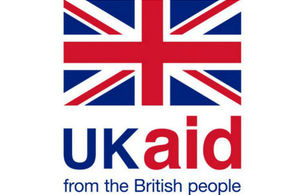Summary of DFID’s work in Central Asia
Tajikistan and Kyrgyzstan are amongst the poorest countries in the Central Asia region (Tajikistan GNI per capita $800; Kyrgyzstan is $840).

DFID to save 500 infant lives and ensure 5,200 children are enrolled in pre-school institutions
Why we work in Central Asia
Tajikistan and Kyrgyzstan are widely considered to be economically and politically fragile in Central Asia. Both countries rely heavily on external assistance and remittances from labour migration.
Due to the global financial crisis, progress on the Millennium Development Goals (MDGs) has been sluggish on all fronts, with risks that the limited progress made in recent years will stall. Tajikistan is very unlikely to achieve the MDGs, and education and health systems are deteriorating compared to the pre-1991 Soviet period. Kyrgyzstan has done better, despite a challenging political, economic and social situation, with the national poverty rate falling from 63% to 31% (2000-2008) with the economy showing steady growth. However, the violent conflict in the south of the country in April 2010 resulted in a deterioration of the social economic indicators. So the progress in delivering the benefits of growth to the poor needs to be accelerated, and the indicators on infant, under five and maternal mortality remain unacceptably high. With many able-bodied men working abroad, women make up the majority of agricultural workers in Tajikistan and Kyrgyzstan, with increased responsibilities for care of the children and elderly relatives. But they work in low paid and exploitative conditions, and face constraints in exercising their legal rights to land, property and money. A WHO Survey in Tajikistan found that approximately 50% of women aged 15 and older had experienced physical, psychological or sexual violence by a family member.
What we will achieve
- 12,000 SMEs and individual entrepreneurs will receive access to credit in Tajikistan through a programme to support growth in the rural economy.
- Through investment climate reforms, we will generate cost savings and investments worth $40m.
- The Regional Migration Programme will help 208,000 poor and vulnerable Tajik and Kyrgyz migrants who go to work in Kazakhstan and Russia. Support includes legal, social and health advice. This will give wide developmental benefits, including for their families left at home.
- In three of the poorest and conflict affected provinces of south Kyrgyzstan, we will save 500 infant lives and ensure 5,200 children are enrolled in pre-school institutions.
Who we will work with
In recognition of our limited resources, most of the work undertaken by DFID in the region involves working with and/or through other donor partners. This approach ensures greater sustainability, facilitates sharing of good practice, and reduces the burden on the partner governments. DFID maintains close engagement in project design, and benefits from wider programme benefits arising from collaboration. We participate in the common UK approach towards engagement in the region, and continue to work closely with colleagues in the Foreign and Commonwealth Office (FCO) on issues of common interest, including through the new British Embassy in Kyrgyzstan.
How we will work
We are streamlining management arrangements, focussing on a small number of sectors as current projects come to an end. We ensure all our projects achieve maximum value for money, for example by working primarily through others. We are seeking to reduce our use of international consultants and engage with local think tanks. The regional Team Leader is our Gender Champion, responsible for ensuring our projects address the needs of women and girls. We have established a very close relationship with UN Women at country level, and we maintain a good dialogue with the government and other donors on gender equality.
Some actions we will take on transparency include:
- Ensuring information about DFID projects is of high quality, clear and easily understandable to the public;
- Translation of summary programme information for all new programmes is being published and disseminated;
- Through our public financial reform programme, we are helping local civil society organizations to understand and contribute to fair and transparent government budgeting; carry out independent analysis and communication of government budgets to make them more accessible;
- We will also be supporting anti-corruption initiatives such as OECD work in Central Asia which aims to improve the process of cross-country peer learning in the areas of legal reform, investigation and prosecutions where appropriate, and integrity in public services.